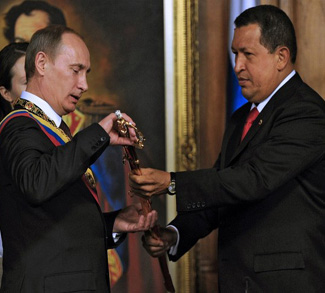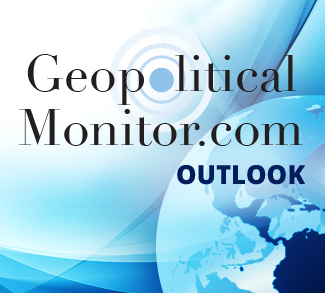FORECAST
As NATO enters its 7th decade, serious questions of its relevancy persist, culminating in the greatest existential threat faced by the military alliance.
In 1949, western powers entered into a joint-military alliance, the North Atlantic Treaty Organization (NATO), with the essential objective of containing the Soviet influence in Europe and defending against the then-perceived threat of invasion from the Soviet Union or its client states in Eastern Europe.
At the heart of the military alliance was a covenant of mutual defence (Article 5) committing member states to the military defence of other member states. In actuality, NATO guaranteed American defence of western Europe in exchange for western Europe’s subservience to the American empire.
However, with the collapse of the Soviet Union in 1991, the raison d’etre of NATO seemed to collapse as well. Not only was the Soviet Union now defunct, but Europe no longer faced any serious threat of invasion. In fact, many analysts, including real politik conservatives, openly called for the disbanding of NATO. However, the American military establishment persuaded the U.S. government to not
only reject proposals for disbandment, but instead, to exploit the power vacuum by expanding.
During the 1990s, with Russia in a free-fall economic, political and military collapse, NATO expanded through the former Warsaw Pact nations, culminating in the dismemberment of Yugoslavia and allowing NATO to establish forward bases on the doorstep of Russia.
Yet the expansionist NATO policy is, in actuality, eroding its own deterrence capacity, the very essence of a military-alliance based upon a mutual defence pact.
The only mission NATO is currently involved in is Afghanistan, but the U.S. war on Afghanistan did not actually trigger Article 5. The United States was not attacked by Afghanistan, thus, its initiating an allied military attack against Afghanistan under Article 5 was ultra vires of the NATO Charter. Another way to look at it is as follows: Article 5 of the NATO Charter has never been triggered by any other terrorist attacks against non-American member states (IRA attacks against Britain, Basque attacks against Spain, Algerian attacks against France, etc.). Thus, the NATO military invasion of Afghanistan was not one of necessity under Article 5, but one of convenience, aimed, as ever since the collapse of the Soviet Empire, at territorial expansion.
As territorial expansion has replaced territorial defence as NATO’s military agenda, cracks have grown in the alliance. Western European governments are split and most of their populations openly oppose NATOs expansionist policy, while new eastern European member states attempt to curry favor with the U.S. by exchanging support for America’s foreign policy agenda for economic integration into the western capitalist system.
Because it is doubtful that the United States, let alone other NATO member states (western Europe in particular) will actually defend the newest additions to the expanding global American empire – as devastatingly exposed by Russia’s response to Georgia last summer – NATO appears to be nothing more than a legitimizing diplomatic cover for American militarist expansionism.
Not-so-coincidentally, America’s continuing push to expand NATO to the front-door of Russia (Ukraine and Georgia) has resulted in closer ties between Russia and China to counterbalance American global military, political and economic hegemony – the very consequence necessary to justify NATO’s continuing existence past its 7th decade.
SUMMARY OF EVENTS: March 30 – April 6, 2009
WORLD
In a press conference after the plenary session the British PM Gordon Brown read the communique of the G-20 leaders where the heads of the states have agreed to make six pledges to improve the world economy and emerge a “new world order.”
One day after world leaders threatened tax havens with sanctions, a host of countries on a freshly published “list of shame” scrambled to get off it even as questions surfaced over China’s maneuvers to exclude Hong Kong and Macau.
NORTH AMERICA
Canada
The discovery of an Internet spy network that reached into foreign embassies, news services and even the office of the Dalai Lama is likely only the “tip of the iceberg,” Canadian researchers said Monday as they urged policy-makers to pay more attention to information security amid an “arms race” in cyberspace.
In stunning testimony that flatly contradicts stated Conservative government policy, a senior CSIS official admitted Wednesday the spy agency still uses information that might have been obtained by torture in national security investigations “if lives are at stake.”
A senior CSIS official Thursday has backpedalled on his admission that the spy agency uses information extracted through torture.
Mexico
Mexican authorities have arrested Vicente Carrillo Leyva — a top leader of the Juarez drugs cartel and one of the government’s most-wanted criminals — prosecutors said on Thursday.
United States
Just months before the start of last year’s stock market collapse, the federal agency that insures the retirement funds of 44 million Americans departed from its conservative investment strategy and decided to put much of its $64 billion insurance fund into stocks.
The United States deployed two missile-interceptor ships from South Korea on Monday, a military spokesman said, days ahead of a North Korean rocket launch widely seen as a long-range missile test that violates U.N. sanctions.
The head of the US military’s Central Command David Petraeus told a Congressional hearing Wednesday that Israel might “choose” to attack in Iran if it sees itself materially threatened by the bomb. The remark comes just a day after Israel’s new Prime Minister seemed to threaten an Iran strike “in months.”
U.S. officials are studying whether a Pakistani Taliban leader blamed for the assassination of Prime Minister Benazir Bhutto poses a credible threat to the United States, a top U.S. military official said on Wednesday.
WESTERN EUROPE
Britain
“Simple fireworks” and “imitation handguns” are all that it took for British authorities to arrest five young activists who allegedly aimed to disrupt the G20 summit.
Chanting G-20 protesters clashed with riot police in central London on Wednesday, overwhelming police lines, vandalizing the Bank of England and smashing windows at the Royal Bank of Scotland.
France
Police clashed with hundreds of protestors on the eve of a NATO summit in Strasbourg Thursday, firing tear gas at the crowd to stop them entering the city centre, an AFP correspondent said.
MIDDLE EAST
Israel
Israeli police questioned the new foreign minister, Avigdor Lieberman, for the second straight day on Friday on suspicion of bribery and money laundering, a police spokesman said.
EAST ASIA
China
China Tuesday rejected a report suggesting it may be involved in using computer networks to spy on exiled Tibetans and foreign governments, accusing its authors of being possessed by “the ghost of the Cold War.”
China denied on Friday that its spies attempted to hack into the phone and computer of Australian Prime Minister Kevin Rudd during a visit to Beijing, amid growing unease in Canberra over Chinese investment.
North Korea
North Korea said on Tuesday it would put on trial two U.S. journalists arrested this month on its border with China, stoking tensions with Washington ahead of a planned rocket launch that has already alarmed the region.
North Korea threatened on Wednesday to shoot down any US spy planes violating its airspace to monitor an imminent rocket launch, as a think-tank cautioned that any international over-reaction to the event could spark a war.
North Korea’s military threatened Thursday to attack “major targets” in Japan if Tokyo tries to shoot down a satellite it intends to launch as soon as this weekend.
North Korea is preparing a rocket to blast off as early as Saturday, officials said, readying what Pyongyang describes as a satellite launch but is widely regarded as a disguised long-range missile test.
CENTRAL ASIA
Afghanistan
President Hamid Karzai has signed a law the UN says legalises rape in marriage and prevents women from leaving the house without permission.
SOUTH ASIA
Cambodia/Thailand
Thai and Cambodian troops fought heavy gun-battles on their disputed border Friday, leaving at least two soldiers dead in the biggest flare-up for months in a bitter feud over an ancient temple.
Pakistan
Pakistan security forces Monday overpowered gunmen who stormed a police academy in a spectacular commando-style raid in which eight police recruits and four attackers died.
The leader of the Pakistani Taliban threatened Tuesday to carry out a terrorist attack on the U.S. capital, and said his forces were behind an assault on a police academy in eastern Pakistan.
Philippines
A state of emergency was imposed on the Philippine island of Jolo where the deadline set by Abu Sayyaf militants to behead one of the three Red Cross hostages expired early Tuesday afternoon, a top military official confirmed.
Manjit Singh is a contributor to Geopoliticalmonitor.com



